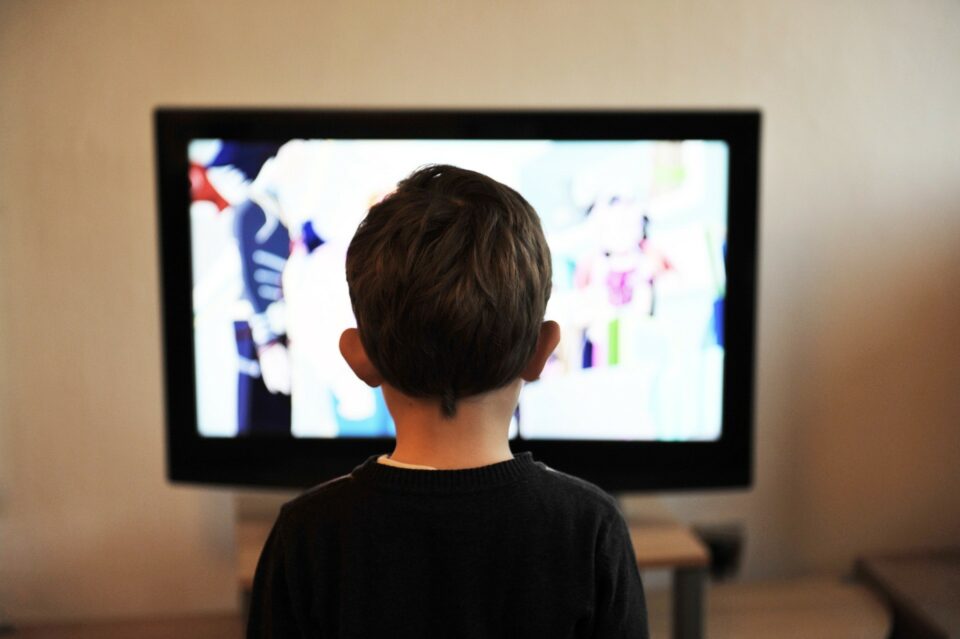In today’s fast-paced and demanding world, it is crucial to prioritize the emotional well-being of our children. While academic success and physical health are often emphasized, emotional wellness plays a vital role in shaping their overall development. By nurturing their hearts and minds, we can equip children with the necessary tools to navigate life’s challenges, build resilience, foster healthy relationships, and lead fulfilling lives.
In this article, we will explore why prioritizing emotional wellness in children is essential and provide practical tips for parents and caregivers.
Why is Emotional Wellbeing Such a Priority?
Prioritizing your child’s emotional wellness is incredibly important for several reasons. Firstly, a child’s emotional well-being directly impacts their overall development and happiness. When children feel emotionally secure and supported, they are more likely to thrive academically, socially, and personally.
Secondly, prioritizing emotional wellness helps children develop healthy coping mechanisms and resilience. Life can be challenging at times, and by teaching children how to navigate their emotions in a positive way, you are equipping them with valuable skills that will benefit them throughout their lives.
Additionally, when parents prioritize their child’s emotional wellness, it strengthens the parent-child bond. By actively listening to your child’s feelings and validating their experiences, you create an environment of trust and open communication. This allows your child to feel comfortable sharing both positive moments and challenges with you.
Lastly, prioritizing emotional wellness sets the foundation for mental health awareness in adulthood. By teaching children from a young age about emotions and how to take care of their mental well-being, they are more likely to grow into emotionally intelligent adults who can recognize when they need support or seek help if necessary.
Overall, prioritizing your child’s emotional wellness is crucial because it lays the groundwork for a happy childhood filled with love, understanding, resilience-building experiences that will positively impact them throughout their lives.
Understanding Your Child’s Emotional Triggers
Understanding a child’s emotional triggers can be a helpful way to support their emotional well-being. When you know what to look for you, can start implementing the strategies we’re going to talk about soon.
Here are some tips to help you in this process:
- Observe and listen: Pay attention to your child’s behavior, body language, and verbal cues. Notice any patterns or changes in their emotions during specific situations or events.
- Communicate openly: Create a safe and open environment where your child feels comfortable expressing their feelings. Encourage them to talk about what they are experiencing and validate their emotions.
- Empathize with them: Put yourself in your child’s shoes and try to understand how they might be feeling in different situations. Show empathy by acknowledging their emotions without judgment or criticism.
- Identify common trigger patterns: Look for common themes or events that consistently lead to emotional reactions in your child. It could be certain activities, interactions with specific people, transitions, or even sensory stimuli like loud noises or bright lights.
- Reflect on past experiences: Think back on similar situations where your child has experienced strong emotions before and consider what may have triggered those reactions at the time.
- Keep a journal: Maintain a journal where you record instances when your child displays intense emotions along with the possible triggers associated with each situation. This can help identify patterns over time.
Remember that every child is unique, so it may take time and patience to fully understand their individual emotional triggers. By being attentive, supportive, and empathetic towards them, you can create an environment that fosters healthy emotional development for your little one!
How to Prioritize Your Child’s Emotional Wellbeing
We’ve already mentioned the importance of remembering that every child is different, however there are some specific strategies you can use to help not only prioritize but truly support your child’s emotional wellbeing from an early age.
Recognizing the Importance of Emotional Wellness
Emotional wellness encompasses a child’s ability to understand emotions, express themselves effectively, manage stressors, develop empathy towards others’ feelings, establish healthy relationships, and regulate their own emotions. When children possess these skills early on in life, they are better equipped to handle setbacks or adversity later on.
Creating a Safe Space for Expression
Encouraging open communication within the family environment is key to fostering emotional wellness. Create an atmosphere where children feel comfortable expressing their thoughts and feelings without fear of judgment or criticism. Active listening plays a crucial role here – give your undivided attention when your child wants to share something with you.
Teaching Emotional Intelligence
Emotional intelligence refers to the ability to recognize one’s own emotions as well as those of others while effectively managing them. Help your child identify different emotions by labelling them during everyday situations or through storytelling activities that highlight various feelings.
Encouraging Healthy Coping Mechanisms
Teach your child healthy ways of coping with stress or difficult emotions such as deep breathing exercises or engaging in creative outlets like drawing or writing journals. Encourage physical activity as it releases endorphins that promote positive mental health.
Building Resilience through Problem-Solving Skills
Resilience is an essential trait that helps children bounce back from setbacks. Encourage problem-solving skills by involving your child in decision-making processes, allowing them to learn from their mistakes, and providing guidance when needed. This fosters independence and confidence.
Promoting Empathy and Kindness
Empathy is a fundamental aspect of emotional wellness as it enables children to understand and connect with others’ emotions. Encourage acts of kindness towards family members, friends, or even strangers through small gestures like sharing toys or helping someone in need.
Limiting Screen Time
Excessive screen time can negatively impact a child’s emotional well-being by hindering social interactions and reducing physical activity levels. Set reasonable limits on screen time while encouraging more face-to-face interactions, outdoor playtime, and engaging activities that promote emotional growth.
Seeking Professional Help When Needed
If you notice persistent signs of emotional distress or behavioural changes in your child that concern you, do not hesitate to seek professional help from paediatricians, therapists, or counsellors who specialize in children’s mental health.
The Role of Parental Behavior
Remember that your child learns from watching you. So, for that reason, it’s important to make sure that you’re exhibiting behaviours you want them to learn from in the first place.
Being a good role model as a parent is essential for the growth and development of your child. Here are some tips to help you be a positive influence:
- Lead by example: Children learn by observing their parents, so it’s important to demonstrate the behaviours and values you want them to adopt. Show kindness, respect, honesty, responsibility, and empathy in your daily life.
- Communicate effectively: Encourage open and honest communication with your child. Listen actively without judgment or interruption, validate their feelings, and respond thoughtfully. This helps build trust and teaches them how to express themselves.
- Practice patience: Parenting can be challenging at times, but practicing patience is crucial. Model self-control when faced with frustrating situations or conflicts so that your child learns how to manage their emotions in a healthy way.
- Set boundaries: Establish clear rules and expectations for behavior while also allowing room for independence and growth. Consistency is key; enforce consequences when necessary but always explain why certain behaviours are not acceptable.
- Foster a love of learning: Show enthusiasm for education by engaging in activities that promote learning together as a family—reading books aloud, visiting museums or libraries, exploring nature—and encourage curiosity in your child’s interests.
- Encourage empathy and kindness: Teach your child the importance of treating others with respect and compassion by modelling these behaviours yourself. Engage in acts of kindness together such as volunteering or helping those in need.
- Support their passions: Encourage your child’s interests by providing opportunities for them to explore different hobbies or activities they enjoy—whether it’s sports, arts, music or anything else—and show genuine interest in what they do.
- Take care of yourself: Being a good role model means taking care of yourself physically, mentally, emotionally, and spiritually too. Showing self-care practices like exercise, eating well, sleeping enough, and managing stress will teach them the importance of self-care.
Remember, being a good role model is an ongoing process. Be patient with yourself and strive to improve every day.
Conclusion
Prioritizing emotional wellness in children is an investment that yields lifelong benefits. By creating a safe space for expression, teaching emotional intelligence skills, encouraging healthy coping mechanisms, building resilience through problem-solving skills, promoting empathy and kindness while limiting screen time – we can equip our children with the tools they need to thrive emotionally throughout their lives.
However, remember that every child is unique in their own right. What works for one may not work so well for another, which means adjusting your technique is important. Understanding your child’s triggers is a great way to know the right path to take and from there, you can focus on the emotional wellbeing of your child in all situations.




